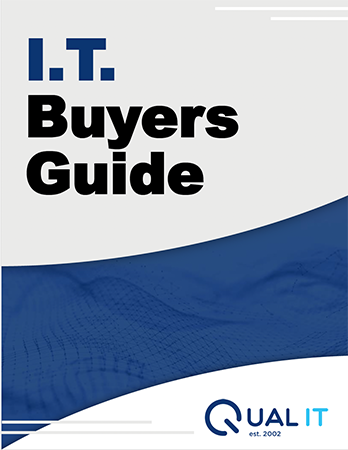 Last December, a medical office in the Avenues received what looked like a simple text from their "medical director": Buy $2,000 in Visa gift cards for staff appreciation. The front desk coordinator, already juggling flu season chaos, didn't pause to question it. By the time she confirmed with leadership, the funds had been drained — and the trust had been shaken.
Last December, a medical office in the Avenues received what looked like a simple text from their "medical director": Buy $2,000 in Visa gift cards for staff appreciation. The front desk coordinator, already juggling flu season chaos, didn't pause to question it. By the time she confirmed with leadership, the funds had been drained — and the trust had been shaken.
That kind of scam is frustrating. But others are far more devastating. That same month, a multi-location specialty clinic in Salt Lake County became the victim of a highly sophisticated wire fraud. The attacker had spoofed vendor email threads and tricked billing into updating banking info for three major vendors.
The result? Nearly $400,000 redirected to criminals. Critical vendors weren’t paid, operations were disrupted, and a week before Christmas, the clinic had to shut down one location for five days.
If you think your Salt Lake medical practice is too small to be targeted, think again. Healthcare remains the #1 targeted industry for cyberattacks, and business email compromise (BEC) scams accounted for 73% of all incidents in 2024. The holiday season is when it spikes — because your team is tired, your schedule is packed, and leadership is stretched thin.
5 Holiday Scams That Could Cripple Your Medical Practice (If You Don’t Catch Them First)
- "Gift Card for Staff" Scams (The $2,000 Text Trap)
The scam: Hackers impersonate doctors or practice managers, often via spoofed emails or texts, and request staff to purchase gift cards "as a surprise."
Prevention: Set a written policy that no gift card purchases are made without in-person or double-authenticated approval. Educate your team that legitimate requests will never come via text.
- Fake Vendor Banking Changes (The RCM Nightmare)
The scam: Criminals infiltrate vendor email threads or send spoofed invoices with "updated payment info." Medical billing teams — especially under end-of-year deadlines — may not think twice.
Prevention: Implement a phone-verification rule for any financial changes over $1,000. Require confirmation using a known, previously verified number.
- Phony Shipment & Lab Result Notifications
The scam: Fake FedEx or LabCorp emails with tracking or result links lure staff into clicking malware-laced links.
Prevention: Teach staff to go directly to vendor websites for tracking. Bookmark lab portals and delivery platforms to avoid link-based phishing.
- Malicious "Holiday Schedule" Attachments
The scam: Emails with attachments like "Holiday_Hours_Update.docx" or "Team_Party_List.xlsx" contain embedded malware or keyloggers.
Prevention: Disable macros. Instruct staff to confirm any unexpected files — especially if they arrive during busy times and appear generic.
- Fake Charities & Donation Match Campaigns
The scam: Emails or social posts pretending to be from Intermountain or U of U Health's charity wings ask for donations — sometimes offering bogus company matches.
Prevention: Provide a vetted list of approved charities. Route all donations through official, clinic-endorsed platforms.
Why Medical Practices Are Prime Targets in December
You already know this: In healthcare, systems can't go down. Vendors need to be paid. Staff need access to EMRs, labs, billing, and communications — all while patient volume spikes and staff bandwidth dips.
Cybercriminals know it too.
They use stress and speed as weapons. These aren’t lazy spam emails. They're tailored, socially engineered, and healthcare-specific. And Salt Lake clinics without robust IT support or proper training? They’re low-hanging fruit.
Salt Lake clinics that run phishing simulations reduce risk by 60%. Clinics using multi-factor authentication (MFA) prevent 99% of unauthorized email access. But too many still rely on single-password logins and outdated systems.
Your Salt Lake City Medical Practice Holiday IT Safety Checklist
- Two-Person Verification Rule for all payments over your limit
- No Gift Card Purchases without direct confirmation
- Call to Confirm vendor banking changes — never just reply
- Enable MFA across EMRs, billing systems, and email
- Hold a 15-Minute Team Huddle before Thanksgiving to walk through these scams
What These Attacks Really Cost You (Hint: It’s Not Just Money)
While $400,000 in wire fraud is brutal, the real cost is:
- EMR downtime during peak season
- Stressed-out staff working overtime on damage control
- Loss of patient trust if PHI is compromised
- Compliance nightmares and skyrocketing cyber insurance rates
According to national data, the average email-based attack costs healthcare practices over $129,000 in lost revenue and response costs. For many, that's the margin between a good Q4 and a devastating one.
The Best Gift You Can Give Your Practice? Peace of Mind.
You don’t need more stress, more tech to manage, or more late nights wondering if your backup is working. You need a team that speaks healthcare IT, that shows up when something breaks — not just when it’s convenient.
At Qual IT, we help Salt Lake medical practices stay compliant, secure, and supported — so you can focus on patients, not pop-ups.
Want to protect your clinic before the holiday rush? Click here to book your free network assessment.
Let’s make sure your only December headache is trying to find a parking spot at Harmons — not dealing with a ransomware attack.



